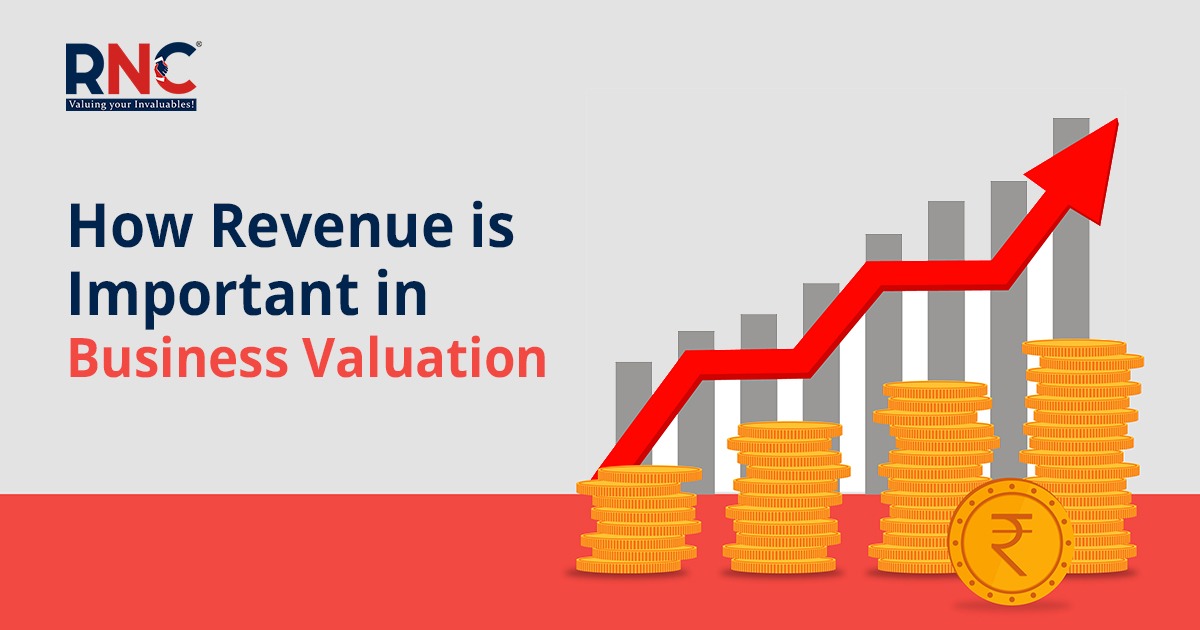
Revenue streams are the lifeblood of every business. Knowing what it is worth and how it affects the overall value of your business valuation is vital to keep it operating profitably. When it comes to knowing value-related information, revenue and earnings have always played a big role.
A business valuation can be done for many reasons and purposes. In the hands of a valuation expert, the deep analysis of a company’s revenue offers many critical insights. Knowing how revenue impacts your business valuation can help you find new opportunities to improve your turnover while optimising existing revenue streams. RNC offers the best business valuation services near you with the single-minded focus of achieving the most profitable outcomes for your business.
When valuing a company, most people focus on profits.
But in 2025, revenue quality has become the real foundation of accurate business valuation.
Revenue tells investors how predictable, diversified, and scalable a business truly is.
Under updated ICAI Valuation Standard VS-102 and SEBI 2025 guidelines, valuers must now assess not just how much revenue a company earns — but how sustainable it is.
This guide from RNC explains why revenue remains the single most influential factor in modern valuation, the metrics experts use, and what founders or CFOs should track before approaching investors or auditors.
Key Takeaways
-
Revenue drives growth assumptions and valuation multiples
-
High quality and predictable revenue boosts valuation
-
Customer concentration risk can reduce valuation
-
Revenue impacts both DCF and market multiple methods
-
Must be audited, normalized, and benchmarked for reliability
Why revenue matters beyond “size”
-
Growth rate: Faster, predictable growth → higher multiples.
-
Quality of revenue: Recurring/contracted > one‑time/project revenue.
-
Stability & seasonality: Low volatility → lower risk → better valuation.
-
Customer concentration: Diversified base > dependency on 1–2 accounts.
-
Recognition & compliance: Clean revenue policies reduce diligence risks.
-
Unit economics: Revenue with healthy margins/retention is valued more.
Here’s a quick look at how revenue is important to business valuation.
Predict Financial Performance
Analysing the different patterns in the revenue streams can help with the different causes, trends, and changes in the revenue. It also helps explain the fluctuations in business. There are varying consistencies for each of the three different revenue streams: product, service, and project revenue. Apart from recurring revenue, service revenue and project revenue are fairly consistent. Studying these revenue streams can give the business valuation analyst enough information to predict financial performance.
Analysing KPIs
Part of the business valuation process is to analyse the company’s performance using its KPIs or key performance indicators. One such indicator is the different revenue streams. These revenue streams are identified and studied to measure their impact on the company’s value.
Risk Assessment and Forecasting
Each kind of revenue stream has its forecast models. Depending on the revenue stream a business has, the business valuation analyst can accurately forecast the revenue months in advance, except for the recurring revenue of a product. They can also estimate the risk using the different forecasting models developed for each revenue stream.
Determine Benchmark Value
Revenue can be defined as the total amount of money generated by the business’s activities. When conducting a business valuation, the revenue streams can help the valuer determine a benchmark value for the business. Comparing the value of a similar business can help the analyst figure out the benchmark applicable to your business.
Revenue Multiple for Valuation
A revenue multiple refers to a ratio used to measure a business’s value based on its total sales. The valuation multiples are determined using the revenue. Companies often resort to the revenue multiple to sell. The revenue is multiplied by the multiple to get the value of the business. This applies to companies that sell based on revenue multiples. These include typical accounting, financial, and professional services transacting on a revenue multiple.
Case Example: Same revenue, different value
Two B2B services firms each report ₹50 Cr revenue.
-
Company A – 28% YoY growth, 70% recurring MRR/retainers, top client at 12% of revenue, stable seasonality → EV/Revenue ~2.4x → ₹120 Cr.
-
Company B – 10% YoY growth, largely one‑time projects, top client at 38% of revenue, heavy Q4 seasonality → EV/Revenue ~1.3x → ₹65 Cr.
Takeaway: Growth and quality/stability of revenue drive multiples—not topline alone.
Need revenue‑based valuation for your company? Book a consultation with RNC’s valuation experts → Schedule now
How Revenue Feeds Valuation Models
| Model | Revenue Role | Outcome |
|---|---|---|
| DCF (Discounted Cash Flow) | Drives cash-flow projection & terminal value | Determines intrinsic value |
| Market Multiples | Used to benchmark EV/Revenue, EV/EBITDA | Shows market comparability |
| Asset-Based Approach | Revenue helps test business viability | Validates going-concern value |
Final Thoughts
Using revenue in business valuation has its intricacies that require an expert with an eye for the details. When you are on the search for business valuation services near me, make sure you pick a reputed valuation firm like RNC, which has the best asset valuers on the team. An experienced business valuation expert can help you improve your revenue streams by giving you the right insights from your financial data. Indian and global businesses that work with us consider us the best business valuation expert. If you’ve been searching for reliable business valuation services near you, we are just a phone call away.
FAQs:
1. Why is revenue important in business valuation?
Revenue reflects a company’s market traction and growth predictability — the foundation of DCF and multiple-based valuations.
2. How do valuers adjust revenue?
They normalize one-off income, remove subsidies, and adjust for deferred or unbilled sales.
3. What revenue metrics improve valuation scores?
High ARR, low churn, and diversified customer bases lead to better valuation multiples.

About the author:
Sahil Narula
Sahil Narula is the Managing Partner at RNC Valuecon LLP and a Registered Valuer with IBBI. He brings over a decade of experience in Valuation Services, Corporate Finance, and Advisory, having led numerous complex assignments under the Insolvency & Bankruptcy Code, 2016, Mergers & Acquisitions, Insurance, and Financial Reporting.
He is a regular speaker at national forums (ASSOCHAM, CII, ICAI, IBBI, Legal Era) and currently serves as Co-Chairman of ASSOCHAM’s National Council on Insolvency & Valuations and a member of CII’s Task Force on Insolvency & Bankruptcy.
🤝Connect with Sahil on LinkedIn.
